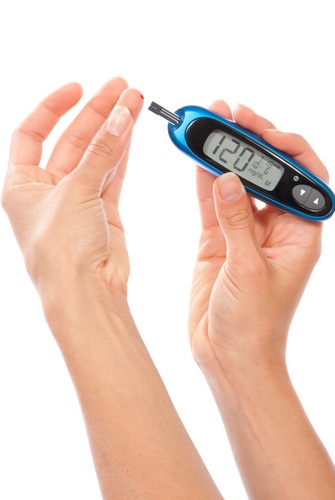 If you’re diabetic, it’s even more important for you to be in good oral health. Gum disease affects 80 percent of American adults, and you may not know you have it. Gum disease, clinically known as periodontal disease, is a bacterial infection of the mouth. In the early stages, symptoms may not be noticeable. However, mild to significant redness, swelling, tenderness, and bleeding of the gums may indicate the onset of gum disease.
If you’re diabetic, it’s even more important for you to be in good oral health. Gum disease affects 80 percent of American adults, and you may not know you have it. Gum disease, clinically known as periodontal disease, is a bacterial infection of the mouth. In the early stages, symptoms may not be noticeable. However, mild to significant redness, swelling, tenderness, and bleeding of the gums may indicate the onset of gum disease.
Routine dental checkups are extremely important in the fight against gum disease. Plaque and hardened plaque, called tartar, are the primary causes of gum disease, and regular dental checkups, along with a quality at-home dental hygiene regiment, will protect you from the bacteria that thrive in the oral cavity.
According to Perio.org, the website for the American Academy of Periodontology, “Severe periodontal disease can increase blood sugar, contributing to increased periods of time when the body functions with a high blood sugar. This puts diabetics at increased risk for diabetic complications. Thus, diabetics who have periodontal disease should be treated to eliminate the periodontal infection.”
The best way to determine if you suffer from gum disease is to see your dentist regularly. By evaluating your teeth and gums and measuring periodontal pockets at the gum line, an oral health professional can diagnose the disease. If you have gum disease, treatment may involve scaling and root planning, called a deep cleaning. With scaling, a hygienist removes tartar from below the gum line. During root planning, rough areas on the roots of teeth are smoothed to reduce the risk for plaque buildup. Other treatments involve topical antibiotics, laser dentistry, and, in severe cases, oral surgery. On the flip side, treating gum disease in the earliest stage can save time, money, and healthy oral tissues.
Don’t ignore bleeding gums, especially if you’re diabetic. Call Grinnell Street Dental at (307) 672-7567 to reserve your appointment with Drs. Cody, Justin, and Donald Coon.







